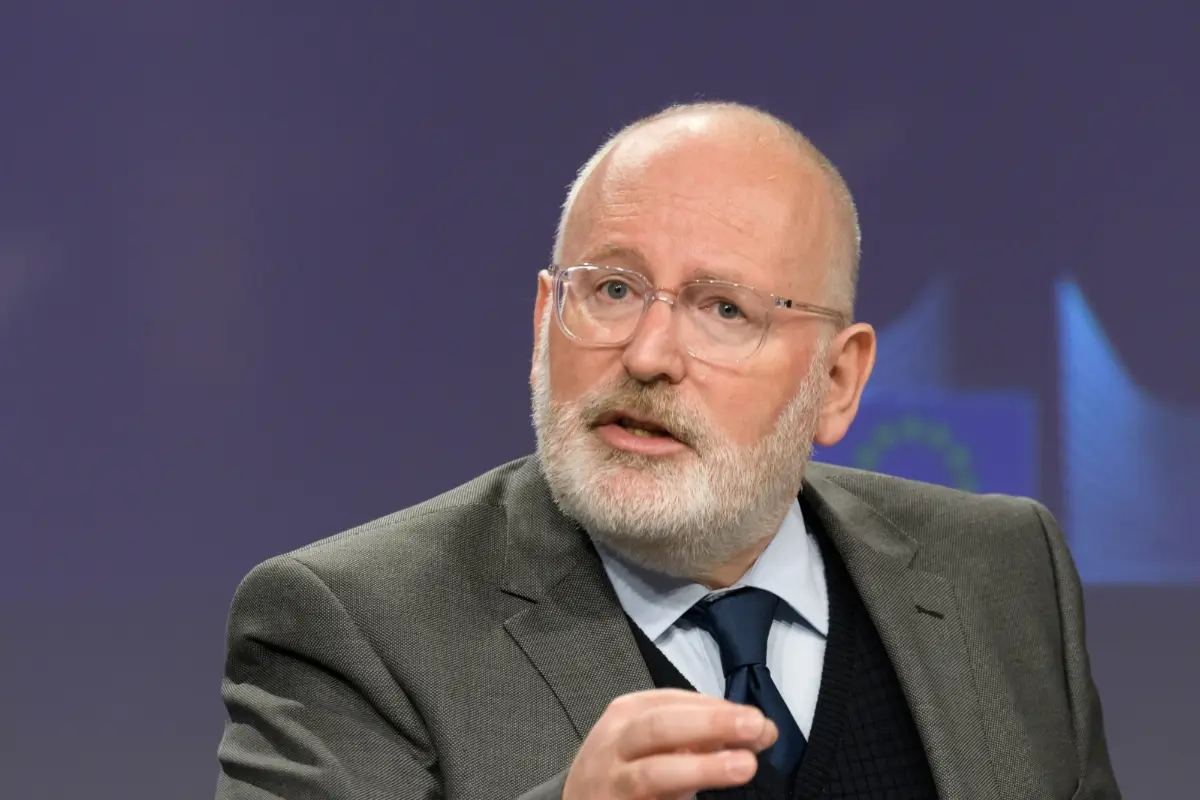
The EU trembles over the green lobby scandal
One billion euros of public funds to fund green lobbyists: former Commissioner Timmermans in the storm

One billion euros. This would be the amount of money intended for climate and environmental subsidies, instead used by Brussels to finance a "shadow lobby" linked to the Green. The EU’s 2025, therefore, opens with what could prove to be one of the biggest scandals ever discovered. According to press reports from an investigation by the authoritative Dutch daily newspaper De Telegraaf, at the heart of the storm are subsidy contracts with environmental organisations including the European Environmental Bureau (EEB), which brings together several European ecological labels. A flood of money from public funds disclosed misused, it seems, to influence political debate, particularly on the Green Agenda.
These bodies were explicitly asked to provide examples of how their lobbying work had made environmental legislation more ambitious, according to one of the oldest newspapers in the Netherlands. The suspicion is that one billion public money has been used not for general utility, but to achieve political objectives of legislative influence. In the investigation’s net, for example, even the controversial law on the restoration of nature, promoted by former Euro-commissioner Frans Timmermans, socialist and champion of the Green ideology, would have been caught up: "pushed" a coalition of 185 environmental organisations funded by EU funds. The "Law of nature", we remember, obliges to restore the situation of nature, pre-existing, in a part of the territory of the EU, demolishing dams and restoring swamps, with damage to agricultural activity and urban security.
For years, the European Commission would have been funding environmental clubs with a mandate to lobby for the green plans of former EU commissioner Timmermans, reports Telegraaf. If it were confirmed, the scandal, according to the oldest Dutch newspaper, would undermine the "credibility of the European administration" which would be compromised by what is already called "the 'scandal of the lobbies'", where environmental organisations may have been paid by the European Commission to promote green policies.
An affair that is eroding the credibility of European governance, according to Bas Batelaan managing partners at Public Matters, a consultancy in the field of public affairs and lobbying in the Netherlands and Brussels specialising in strategic communication. "We need it -the manager reported in Telegraaf- strict rules that clearly delimit the role that civil society organisations can play in the policy making process".
Dirk Gotink, MEP, speaks openly of "lobby lists with names of politicians to be contacted": he himself, together with other colleagues, is investigating the contracts concluded in the last five years, talking about a "highly orchestrated collusion between the Green coalition led by Timmermans and the left-wing majority of the European Parliament". "Is it a bad apple or a common habit?" Gotink asks, assuming that similar practices may also cover other issues such as migration.
It is not the first time that signs have been seen of an attempt by Brussels to push its own green agenda through targeted funding of a political nature: In 2023, pressure was reported on companies to influence MEPs who were more sceptical about the nature restoration law, which had met with strong resistance, especially in the Netherlands.
That of the pressures from green lobbies has become a widespread practice, it seems to understand, so much so that last autumn, a directive imposed on the environmental movement the prohibition of lobbying with the money of subsidies at the EU institutions, But it’s late, the blinds have already escaped from the barn.
Meanwhile, the EEB stands up and underlines the need for resources to make citizens' voices heard in a democracy and highlights the positive role played in strengthening the EU’s reputation as a leader in ecological transition. The fact is that, with this dust-up, environmentalists now fear of losing fixed subsidies for 15.5 million euros per year. The newly appointed Euro-commissioner, Piotr Serafin, calls lobbying contracts "unacceptable" and promises to put an end to such practices. "It is inappropriate to enter into agreements which oblige NGOs to put pressure on MEPs -explains Serafin-. Unfortunately, such practices have occurred in the past and must be eradicated".
EFA News - European Food Agency